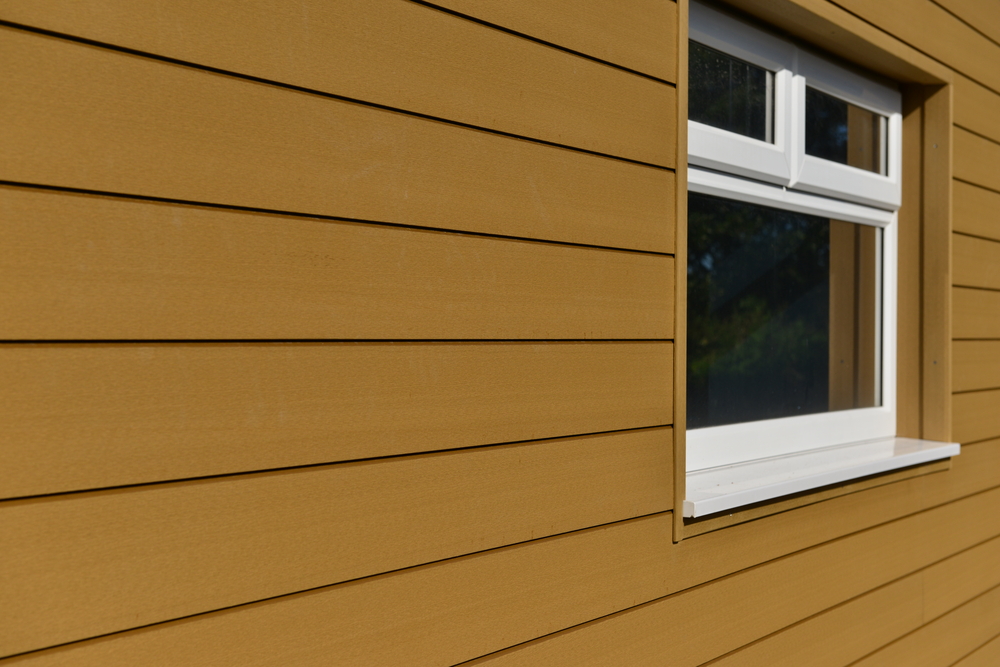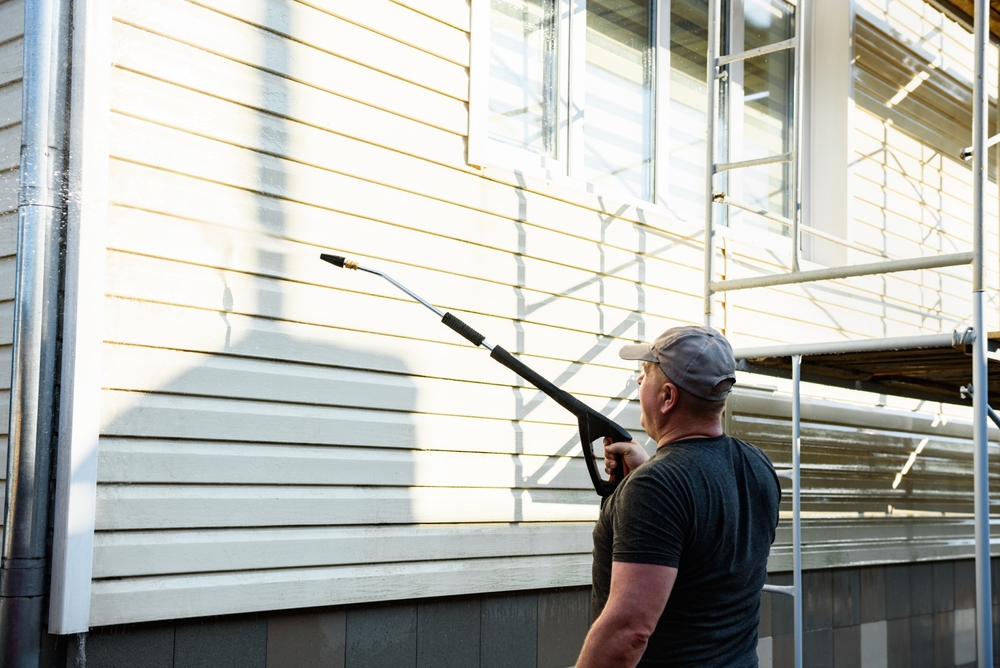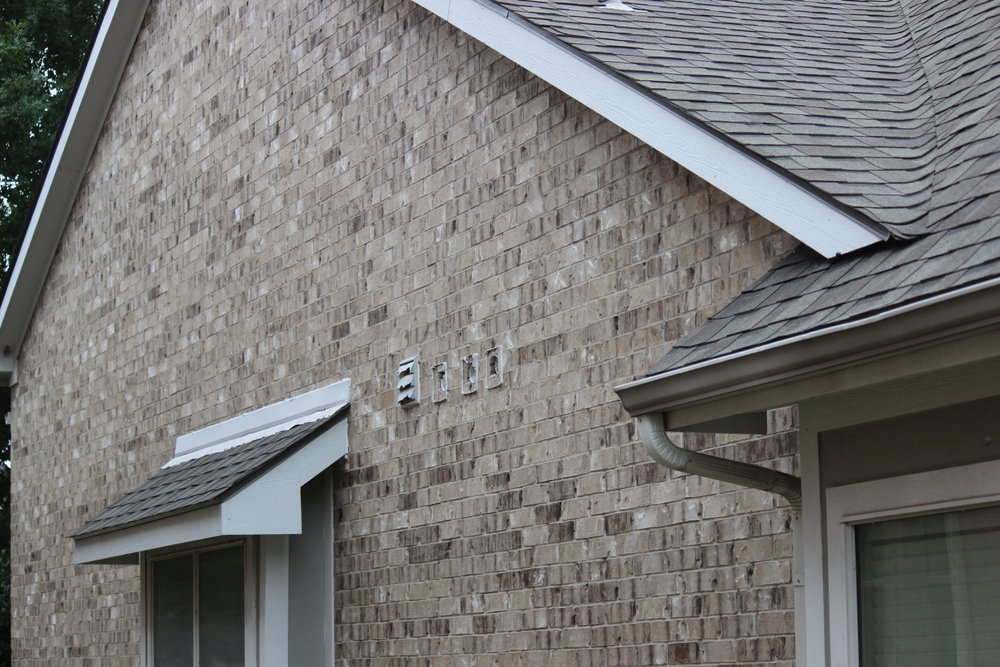Why Licensing and Insurance Matter When Hiring a Siding Contractor
The Risks of Hiring an Unlicensed Contractor
Before you hire a siding contractor in California, there’s one step that can save you major stress — making sure they’re licensed and insured. It sounds simple, but skipping this check is one of the most common (and costly) mistakes homeowners make. An unlicensed individual operating out of a truck might offer a tempting cash discount, but that low price comes with enormous risks.
Unlicensed contractors often lack the training, experience, and financial stability of legitimate businesses. They operate outside the law, meaning you have no recourse through the state licensing board if the work is subpar, they abandon the job, or they damage your property. Hiring one is a gamble where your home is the stake.
What Homeowners Gain from Working with Licensed Professionals
Working with a licensed professional provides a safety net. A valid California contractor’s license is proof that the individual or company has met a state-mandated level of competency, including passing trade exams and a background check. It means they have posted a bond for consumer protection and are accountable to the Contractors State License Board (CSLB).
This accountability is crucial. If a dispute arises with a licensed contractor, you can file a complaint with the CSLB, which offers free mediation and arbitration services. With an unlicensed operator, your only option is often a costly and complicated civil lawsuit. Before hiring any siding contractor near you, make sure they’re licensed and insured.
How Proper Insurance Protects You and Your Property
Insurance is just as vital as licensing. It protects you from financial liability for accidents and damages that can occur during a construction project. A professional siding contractor carries specific policies to cover potential mishaps, shielding your personal assets from unforeseen events. Without this coverage, you, the homeowner, could be held responsible for everything from a worker’s injury to a broken window.
Understanding California’s Licensing Requirements for Siding Contractors
The CSLB and What It Regulates
The Contractors State License Board (CSLB) is the state agency responsible for regulating the construction industry in California. Its mission is to protect consumers by ensuring contractors meet a minimum standard of experience and business knowledge. The CSLB handles everything from issuing licenses and investigating complaints to taking disciplinary action against contractors who violate the law. Any construction project valued at $500 or more (including materials and labor) legally requires a CSLB-issued license.
What the C-61/D-41 Siding and Decking License Covers
In California, siding work falls under a specialty classification. A contractor installing siding should hold a C-61 Limited Specialty license with a D-41 Siding and Decking classification. This specific license indicates that the contractor has demonstrated experience and knowledge directly related to siding installation, waterproofing, and related systems.
Alternatively, a contractor with a B-General Building Contractor license is also qualified to perform siding work, as their license covers projects involving at least two unrelated building trades. Always confirm the contractor holds one of these appropriate licenses.
How to Verify a Contractor’s License Using the CSLB Website
The CSLB makes it incredibly easy for homeowners to verify a contractor’s status. It’s a simple, free process that takes less than a minute.
- Ask the contractor for their 7-digit license number. A professional will provide it without hesitation.
- Go to the CSLB’s official website and find the “Instant License Check” or “Check a License” tool.
- Enter the license number.
The results will instantly show you the business name, license status (is it active, expired, or suspended?), and whether they have the required bond and workers’ compensation insurance on file.
Pro Tip: Make sure the name on the license matches the name on the contract and the company’s marketing materials. Some unlicensed operators illegally use another company’s license number.
Types of Insurance Every Siding Contractor Should Have
General Liability Insurance — Protecting Your Property
This is fundamental. General liability insurance covers accidental damage to your property or injuries to non-employees caused by the contractor’s work. If a crew member accidentally breaks a window, damages your landscaping with a ladder, or causes a leak that harms your interior drywall, this policy pays for the repairs. Without it, the contractor might be unable to cover the damages, leaving you to file a claim on your homeowner’s policy or pay out of pocket. A typical policy for a residential contractor should provide at least $1 million in coverage.
Workers’ Compensation Insurance — Protecting Workers on Site
This is arguably the most critical insurance for a homeowner’s protection. Workers’ compensation insurance covers medical expenses and lost wages for any employee who gets injured while working on your property.
In California, any contractor with employees is required by law to carry this coverage. If they don’t, and a worker falls from a ladder or is injured on your job site, you could be considered the “employer” and held personally liable for their medical bills and other costs. This can lead to devastating lawsuits. Always verify that a contractor has an active workers’ compensation policy.
Vehicle and Equipment Coverage — Reducing Jobsite Risks
While not as directly tied to your protection as the other two, a contractor who carries commercial auto and equipment insurance demonstrates a higher level of professionalism and financial stability. This coverage ensures that if their work vehicles or specialized equipment are damaged or stolen, the project isn’t derailed. It’s another sign that you’re dealing with a legitimate, well-run business that is prepared for contingencies.
What Can Go Wrong Without Proper Licensing or Coverage
Homeowner Liability for Jobsite Accidents
The scenario is a homeowner’s nightmare: a worker is seriously injured on your property, and you learn the contractor you hired had no workers’ compensation insurance. In the eyes of the law, you may be held responsible. This can result in you being sued for an amount that could jeopardize your home and savings. This risk alone is the single most compelling reason to never hire a contractor without verifying their insurance coverage.
Uninsured Damage or Poor Workmanship
If an unlicensed or uninsured contractor causes significant damage to your home, you have very little leverage. They may not have the financial resources to pay for the repairs, and since they operate outside the system, you have no licensing board to appeal to for help. Your only option is a civil lawsuit, which is expensive, time-consuming, and offers no guarantee of recovery. Similarly, if the work is shoddy and fails prematurely, there is no one to hold accountable.
Why Unlicensed Contractors Can’t Pull Permits in California
Most significant siding replacement jobs require a building permit from your local city or county. This permit ensures the work is inspected and meets current building codes for safety and structural integrity. In California, only licensed contractors or the homeowner (acting as an owner-builder) can legally pull a building permit.
An unlicensed contractor cannot pull a permit in their name. They might ask you to pull it as an “owner-builder,” which is a major red flag. When you pull a permit as an owner-builder, you are legally taking on all the responsibility and liability for the project, including ensuring all work is code-compliant and all workers are covered by insurance.
How to Check if a California Contractor Is Licensed and Insured
Step 1 — Visit the CSLB License Check Tool
The CSLB’s online portal is your first and most important stop. Have the contractor’s full business name or, even better, their license number ready.
Step 2 — Verify Business Name and License Status
On the CSLB results page, confirm four key things:
- The business name on the license matches the one on their contract.
- The license status is “Active” and in good standing.
- The “Contractor’s Bond” section shows an active bond.
- The “Workers’ Comp” section shows an active policy on file. If it says “exempt,” it means the contractor has legally declared they have no employees. This is a major red flag if they show up with a crew.
Step 3 — Ask for Proof of Insurance (and What to Look For)
In addition to the CSLB lookup, ask the contractor to provide you with a “Certificate of Insurance” (COI) for their general liability policy. This is a standard document they can get from their insurance agent.
When you receive the COI, check:
- The policy dates to ensure it’s current.
- The coverage amounts meet a reasonable minimum (e.g., $1 million).
- The certificate holder section can even list your name and address, offering direct proof of coverage for your specific project.
Pro Tip — What “Fully Licensed and Insured” Really Means
How Some Contractors Misuse the Term
Nearly every contractor advertises that they are “fully licensed and insured.” Unfortunately, some use this phrase dishonestly. It might mean they have a business license from the city (which is not a contractor’s license) or that they have auto insurance (which is not general liability or workers’ comp). You must always verify the specifics.
The Difference Between Bonded, Licensed, and Insured
These three terms are often used together but mean different things.
- Licensed: The contractor has met the CSLB’s requirements for experience and testing.
- Insured: The contractor has active general liability and workers’ compensation policies.
- Bonded: The contractor has a $25,000 surety bond on file with the CSLB. This bond is a limited consumer protection fund that can be used to pay for damages if a contractor fails to complete a job or pay subcontractors. It offers some protection but is no substitute for proper insurance.
How Heritage Exteriors Provides Proof Before Every Job
At Heritage Exteriors, transparency is fundamental. We believe you have a right to feel completely secure before work begins. That’s why we proactively provide our CSLB license number and full proof of our general liability and workers’ compensation insurance with every estimate. We want you to have total peace of mind knowing you are working with a legitimate, responsible, and fully-compliant company.
How Heritage Exteriors Meets (and Exceeds) California Requirements
Licensed by the CSLB Since 2014
Heritage Exteriors has been continuously licensed in good standing with the CSLB since our founding in 2014. Our long history of compliance and professionalism is a matter of public record and a source of pride for our company.
Fully Insured and In-House — No Subcontracted Labor
We carry comprehensive general liability and workers’ compensation insurance for all our employees. Because we use our own in-house crews—not subcontractors—we can guarantee that every single person working on your home is a trained professional covered by our policies. This eliminates the risks associated with uninsured subcontracted labor and gives us full control over quality and safety.
Trusted James Hardie Preferred Contractor Serving NorCal
Our commitment to professionalism extends to our manufacturer partnerships. As a James Hardie Preferred Contractor, we not only meet California’s legal requirements but also adhere to the highest installation standards set by the industry’s leading fiber cement siding manufacturer. This dual commitment to compliance and quality ensures a superior result for our clients across Sacramento, the Bay Area, and Lake Tahoe.
Common Questions About Licensing & Insurance for Siding Contractors
How Can I Check If My Contractor’s License Is Active?
The easiest way is to use the online license check tool on the official California CSLB website. You can search by license number, business name, or personnel name. The status will be clearly marked as “Active,” “Inactive,” “Expired,” or “Suspended.”
What Should I Ask for Before Signing a Contract?
Before signing, you should have the contractor’s license number, a Certificate of Insurance for their general liability policy, and confirmation that their workers’ compensation policy is active on the CSLB website. Having this documentation is one of the most important questions to ask up front. Once you have it, you’ll be ready to learn how to compare bids once you’ve verified credentials.
Are Contractors Required to Carry Workers’ Comp in California?
Yes, all California contractors with one or more employees are required by law to have workers’ compensation insurance. A contractor can only be “exempt” if they are a sole proprietor with zero employees, which would be highly unusual for a siding installation company.
Hire with Confidence — Work with a Licensed, Insured Expert
Why Choosing the Right Contractor Matters Most
Hiring a licensed and insured siding contractor isn’t just a box to check — it’s your best protection against risk, poor workmanship, or hidden costs. It is the foundation of a successful project, ensuring you are working with a professional who is accountable, responsible, and committed to following the law.
Schedule Your Free Consultation Today
At Heritage Exteriors, we’re proud to be a CSLB-licensed, fully insured, family-owned contractor with over a decade of experience in residential and commercial siding across Northern California. We’re open about our credentials, transparent with every estimate, and committed to the highest standards of craftsmanship.
Proudly Serving Sacramento, the Bay Area, and Lake Tahoe
Call 916-546-2991 or request your free estimate today to talk with a verified local siding expert — serving Sacramento, the Bay Area, and Lake Tahoe with quality you can trust.




